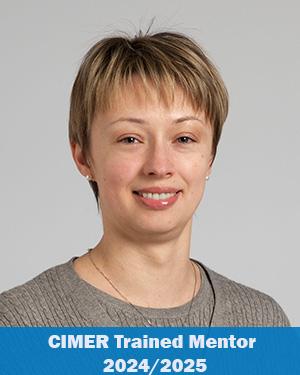Research News
04/15/2021
$3 Million NIH Grant to Support Research into Preventing Post-Transplant Organ Rejection
Dr. Valujskikh will investigate how immune cell subpopulations produce pathogenic antibodies following organ transplant that can threaten outcomes, including organ acceptance and function and patient survival, in an effort to develop new therapies for antibody-mediated rejection.

Anna Valujskikh, PhD, has been awarded a five-year, $3 million grant from the National Institute of Allergy and Infectious Diseases, part of the National Institutes of Health (NIH), to identify therapeutic targets to treat or prevent organ rejection following transplant.
White blood cells called B lymphocytes are an integral component of the adaptive immune system that secrete protective antibodies in response to various pathogens. Once antibodies detect invaders, they signal to other parts of the immune system to attack and destroy. However, the same cells and mechanisms can be detrimental in the context of transplantation if the immune cells recognize the donor organ as foreign, potentially jeopardizing organ acceptance and patient survival.
Limitations of current anti-rejection approaches
“Antibody-mediated rejection (AMR) is one of the most challenging problems in modern clinical transplantation, however, there are currently no FDA-approved drugs or approaches to specifically prevent it,” said Dr. Valujskikh.
To prevent organ rejection, transplant recipients must take a significant number of broad-spectrum immunosuppressive drugs to maintain transplant function. The drug cocktails can cause harmful side effects, like opportunistic infections and kidney toxicity; vary widely by prescribing doctor and transplant center; and have been adapted from the treatment of other diseases, such as autoimmune conditions and cancer.
Shifting focus: could targeting B cells be more effective?
“Understanding the mechanisms of antibody generation following transplantation is essential for developing effective therapies for transplant recipients at risk of AMR,” said Dr. Valujskikh. “Instead of relying on existing and aggressive anti-rejection drugs, we want to identify the particular subsets of B cells that are key contributors to antibody production. Our long-term goal is to develop therapies that specifically target these cells or immune components.”
Here, the researchers will investigate preclinical models of renal transplantation. By mirroring a human transplant and fully reconnecting the bladder to the transplanted kidney, researchers will have the opportunity to study and analyze the antibodies made in immune organs with special interest to exploring the molecular pathways of spleen cells, a pathway not fully understood.
Dr. Valujskikh’s investigations over the next five years will address the current gaps in understanding of how pathogenic antibodies are made after transplantation and discover the mechanisms that spur their development. The ultimate goal of Valujskikh’s team is to identify novel therapeutic targets to prevent and treat acute and chronic AMR and improve clinical transplant outcomes.
The award builds on Dr. Valujskikh’s previous collaborative studies with William Baldwin, MD, PhD, and Robert Fairchild, PhD, all members of the Department of Inflammation & Immunity. For the last ten years, this group’s research into therapies to prevent antibody-mediated transplant rejection has been supported by the NIH.
Featured Experts
News Category
Related News
Research areas
Want To Support Ground-Breaking Research at Cleveland Clinic?
Discover how you can help Cleveland Clinic save lives and continue to lead the transformation of healthcare.
Give to Cleveland Clinic